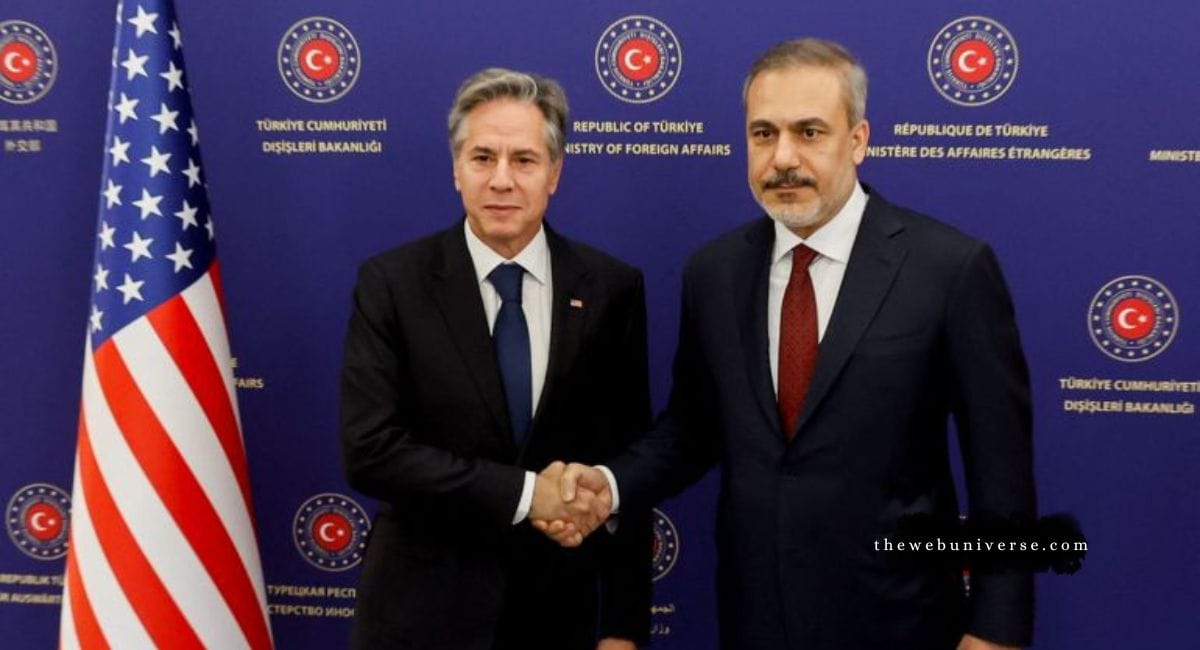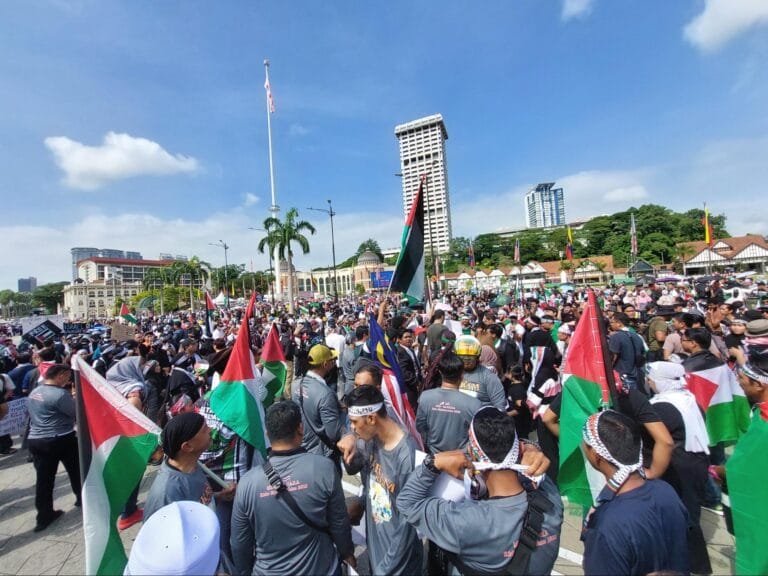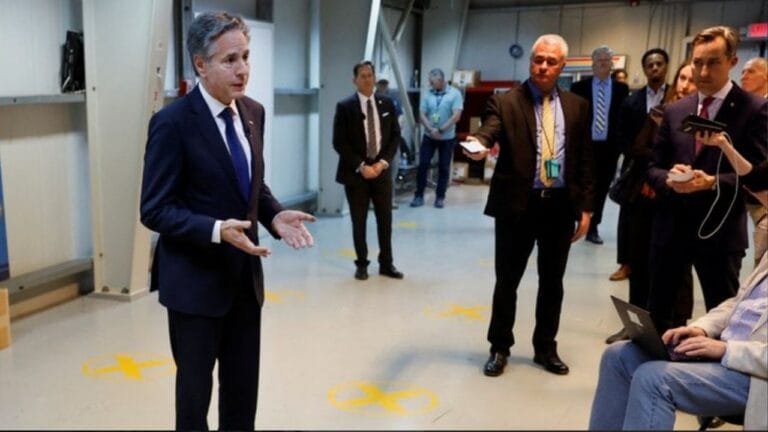US Secretary of State Blinken Meets Turkish FM for Challenging Israel-Gaza Talks

In a bid to ease regional tensions concerning the ongoing Israel-Hamas conflict, United States Secretary of State Antony Blinken engaged in a two-and-a-half-hour meeting with Turkish Foreign Minister Hakan Fidan in Ankara. This meeting was part of Blinken’s challenging Middle East tour, where he has been striving to facilitate discussions and humanitarian aid in the midst of the Israel-Gaza war.
The reception for Blinken in Turkey was less than warm, as President Recep Tayyip Erdogan declined to meet with the US diplomat. Tensions have been running high in the region, with Arab and Muslim leaders expressing frustration over the United States’ unwavering support for Israel, which has resulted in a month-long conflict, taking the lives of more than 10,000 individuals, including a substantial number of children.
While Washington has called for a “humanitarian pause” in the fighting, it has stopped short of joining global calls for an immediate and comprehensive ceasefire. During the meeting, Blinken stated, “We discussed … efforts to significantly expand humanitarian assistance to people in need, and efforts to prevent the conflict from expanding to other parts of the region and what we can do to set the conditions for a durable, sustainable, lasting peace for Israelis and Palestinians.”
The mission undertaken by Blinken, his second visit to the region since the conflict began, has faced challenges in gaining broad support. Israel has resisted US calls for a pause in hostilities, while Arab and Muslim nations have insisted on an immediate ceasefire to mitigate the mounting casualties in Gaza.
During the meeting with Turkish officials, the US emphasized putting pressure on Hamas to secure the release of captives. However, Turkey maintained its stance that the prisoner release should be mutual, involving the release of both captives held by Hamas and Palestinian prisoners held by Israel. Turkey also called for an unconditional ceasefire, proposing an international mechanism to oversee the ceasefire, with Ankara acting as the guarantor.
Turkey, a strategic US ally despite occasional foreign policy disagreements, has been among the most vocal critics of Israel since the conflict erupted, accusing Israel of war crimes and a massacre. Ankara further heightened tensions by recalling its ambassador from Tel Aviv, and President Erdogan openly criticized Western powers supporting Israel during the Gaza crisis.
Public anger in Turkey was evident as hundreds of demonstrators gathered outside an airbase hosting US troops in southeastern Turkey, with police dispersing the protests using tear gas and water canisters. This discontent underscores the challenges faced by the US in its diplomatic efforts to address the Israel-Gaza situation.
The strained relationship between the US and Turkey extends beyond the current conflict, with disputes over various foreign policy issues, including NATO and arms deals. Despite these tensions, Blinken expressed optimism regarding Sweden’s bid to join NATO and ongoing commitments to strengthen the alliance.
The United States’ support for Kurdish fighters in Syria, viewed by Turkey as linked to the Kurdistan Workers’ Party (PKK), which is banned by Turkey, the US, and the European Union, has further fueled the rift between the two nations.
President Erdogan has been striving to position Turkey as a mediator to end the violence and work toward the establishment of an independent Palestinian state. He has mentioned Turkey’s efforts to establish a humanitarian ceasefire and ensure a steady flow of humanitarian aid to Gaza. Additionally, he expressed a commitment to preparing the groundwork for an international peace conference.
As the Israel-Gaza conflict persists, all eyes are on diplomatic efforts to bring about a ceasefire and facilitate peace in the region, even as challenges and differing perspectives persist.
FAQs
What was the purpose of the meeting between Antony Blinken and Hakan Fidan in Ankara?
The meeting aimed to address the ongoing Israel-Gaza conflict and discuss diplomatic efforts to ease regional tensions. It was part of Blinken’s Middle East tour to facilitate discussions and humanitarian aid.
Why was Antony Blinken met with a cold reception in Turkey?
The reception was less than warm due to frustrations over the United States’ support for Israel, which had led to a month-long conflict resulting in significant casualties. Arab and Muslim leaders were pressing for an immediate ceasefire, which the US was not fully endorsing.
What were the key points of disagreement during the meeting between US and Turkish officials?
Points of disagreement included the approach to securing the release of captives, with Turkey advocating for mutual releases by both Hamas and Israel. Additionally, Turkey called for an unconditional ceasefire and proposed an international mechanism to oversee it, with Turkey serving as the guarantor.
How is Turkey positioning itself in the Israel-Gaza conflict?
Turkey is trying to position itself as a mediator to stop the violence and work toward an independent Palestinian state. President Erdogan has emphasized the need for a humanitarian ceasefire and has been working on mechanisms to ensure security and aid flow to Gaza. Additionally, he has expressed a commitment to prepare the groundwork for an international peace conference.






